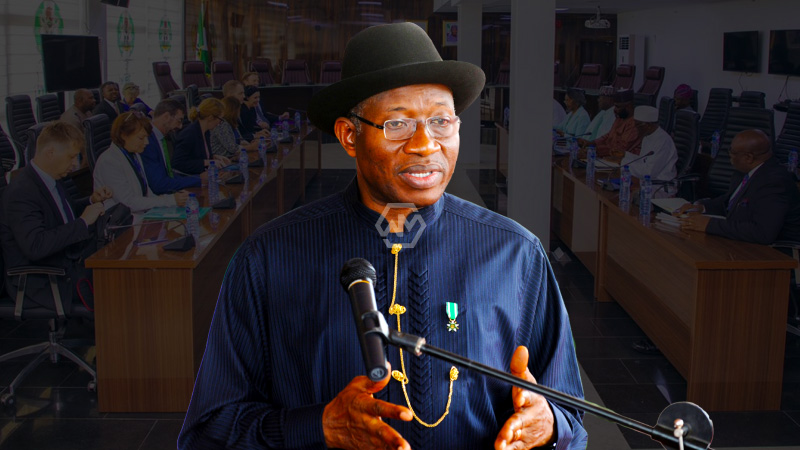- Jonathan called off-season elections strange and said they are not a good idea anywhere in the world.
- Off-cycle elections take place outside of the regular general election schedule.
- Nigeria’s INEC is coming under fire for the way it has handled the increasingly contentious off-season elections.
The off-season governorship elections in Bayelsa, Imo, and Kogi States should be called off, according to former Nigerian President Goodluck Jonathan. Jonathan called off-season elections strange and said they are not a good idea anywhere in the world.
He also asked the National Assembly to make sure they are banned. Off-cycle elections take place outside of the regular general election schedule. Every four years, Nigeria holds simultaneous elections for the State House of Assemblies, the National Assembly, the Presidential Office, and the Gubernatorial office.
Stakeholders debate
Nevertheless, problems that arose during prior general election schedules caused off-cycle elections in states like Bayelsa, Kogi, Anambra, Osun, Ondo, Edo, Ekiti, and most recently, Imo.
According to some political analysts, off-season surveys enable a more targeted and effective electoral process, which boosts voter turnout and creates a better-informed electorate. Nonetheless, some observers contend that elections held outside of the regular election season could result in higher costs and lower voter turnout.
Prof. Lai Olurode, a former INEC commissioner, feels that the court’s growing power over Nigeria’s pluralist democracy is the real problem with the country’s electoral system, not the fact that elections are held outside of the regular election season.
Nigeria’s Independent National Electoral Commission (INEC) is coming under fire for the way it has handled the increasingly contentious off-season elections. According to Olurode, the sociology professor, the nation is not benefiting from the court’s increasingly prominent and potent role in governing democracy. According to his proposal, elections ought to be conducted on a partisan basis, with members of the PDP, APC, and Labour Party being chosen according to their relative strength.
Olurode also takes issue with the notion that judges are apolitical because they all have personal political inclinations. To avoid off-season elections and guarantee that all election-related matters are resolved before swearing-in, he proposes that INEC concentrate on electronic transparency and credibility.
The judiciary alone, according to Transition Monitoring Group (TMG) chairman Auwal Musa Rafsanjani, can put an end to off-cycle elections by making sure that all election-related matters are resolved before swearing-in. He thinks that politicians will keep coming up with ways to hold elections outside of the regular cycle, which is a needless waste of money, time, and effort.
Finally, Olurode stresses the significance of devolution of power and making sure the judiciary can complete the legal process before inauguration. INEC maintains that it can hold governorship elections in each of the 36 states of the federation at every general election; however, if court rulings modify the schedule of some governorship elections, things might be different.



